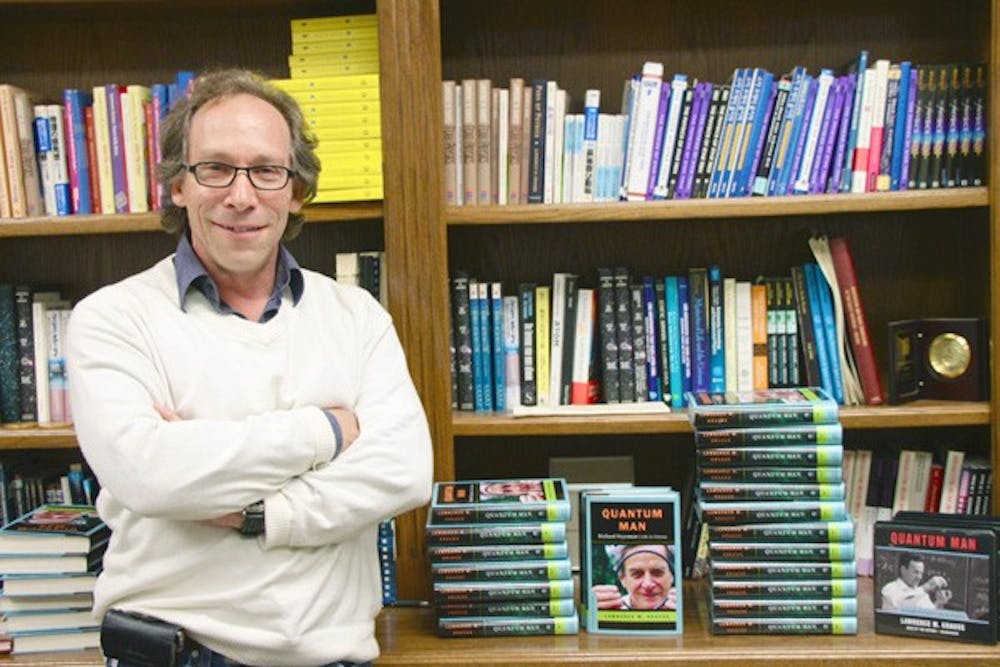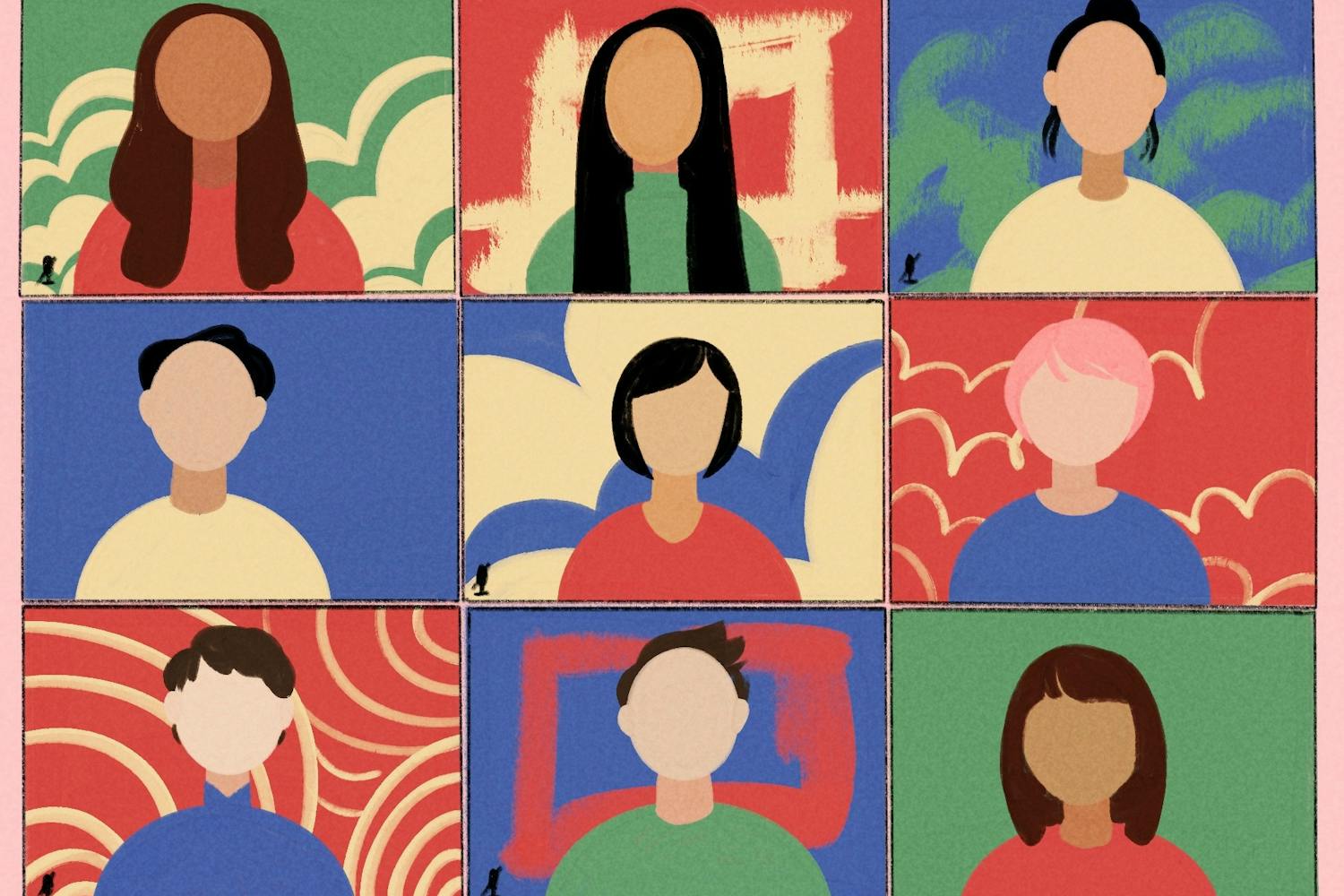A life-size cardboard figure of Spock, a blow-up alien and a Star Trek Barbie and Ken are just a few of the decorations in Professor Lawrence Krauss’ office.
A charmingly cluttered nerd’s paradise full of oddities and books perfectly fits with the eccentric Krauss, who sat with his feet up on a couch while eating macaroni and cheese the day after the release of his latest book, “Quantum Man: Richard Feynman’s Life in Science.”
His eighth book is a biography that chronicles the life of world-renowned physicist Richard Feynman, a personal hero to Krauss. The book hit store shelves Monday.
“Feynman is a hero to all physicists,” he said. “The book was a great opportunity to expose the real man, the scientist.”
Using a unique weaving of biography and science, “Quantum Man” allowed Krauss to reach a wide audience.
“I’m a physicist and I knew Feynman, so I could explain with some authority the science,” he said. “It’s really a science book, but under the general rubric of a biography.”
This method of integrating personal letters published by Feynman’s daughter with quantum dynamics has intrigued the general public and physicists alike.
“With a lot of my books I try to seduce people into reading stuff they normally wouldn’t,” Krauss said. “I tried to put something in there for everyone.”
Krauss’ idea of a Feynman biography began in 2006. He completed the book in October 2009, and it was picked up by editors soon after. Reading all of his studies and gathering information from secondary sources, Krauss was able to construct an intimate portrait of a man known for his work on the Manhattan Project. He also developed concepts of computing, nanotechnology, quantum electrodynamics and particle physics.
Journalism professor Edward Sylvester, a science writer and colleague of Krauss, said Krauss’ books are successful because of his ability to write for the general public, not just physicists.
“He can explain simply very complex ideas,” he said. “It’s a gift.”
Krauss developed his interest in science through reading books as a teenager. His mother wanted him to become a doctor, but Krauss realized that his love of science surpassed an interest in medicine.
“My mother told me doctors were scientists, so I got into science, and then I discovered that doctors were not scientists,” he said. “By then I was hooked on science.”
Krauss said reading books by physicists in high school inspired him to become a physicist.
“That’s one reason I write books,” he said. “To return the favor.”
Writing, however, happened by chance. While doing research at Harvard University, Krauss’ friend and Nobel Prize winner Steven Weinberg urged his publisher to talk with Krauss. Eventually a few breakfast meetings turned into writing a book.
“I guess I was open to the idea of writing something because I admired the people who did write,” he said.
Knowing all the right people has served Krauss well. As the director of the Origins Initiative at ASU, he is able to summon the brightest minds in the world to speak to students and the community.
Krauss was recruited by ASU President Michael Crow to form the program that acts as a major research component of the University, creates a curriculum that gives students the opportunity to ask questions about origins and provides an international center of outreach, he said.
“Origins is a great example of a New American University program that studies important questions — the origins of the universe, the origin of life, the origin of consciousness and the origin of culture — in an innovative way,” Crow said in an e-mail.
Krauss said he wanted to examine several fundamental questions about “origins” that required a transdisciplinary approach.
“That’s what ASU is all about,” he said.
The program’s upcoming “Science and Culture Festival” will bring famous names to ASU, including physicist Stephen Hawking, filmmaker Werner Herzog and author Cormac McCarthy. The weeklong event that begins April 11 will combine science and culture, Krauss said.
“I believe science is a very important part of our culture,” he said. “Science, art and literature affect the way we see ourselves and our place in the cosmos.”
Giving students the opportunity to ask fundamental questions about the origins of the universe and origins of life is key to the program, he said.
Students can purchase Krauss’ book through Amazon.com or anywhere books are sold, Krauss said.
“If it’s not there, they should complain,” he said with a laugh.
Krauss has a ninth book coming out in January 2012 titled “A Universe From Nothing.”
The author has only a few words of advice for students interested in a career as a writer.
“If you like to write, write,” he said. “Just keep writing.”
Reach the reporter at tafergu1@asu.edu





